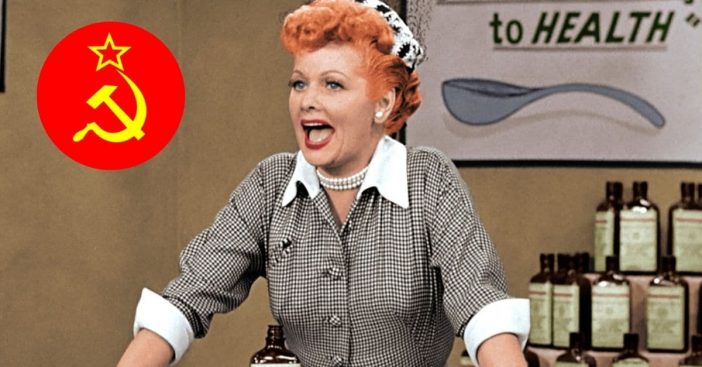
UPDATED 8/31/2022
Even in the years following both World War I and World War II, America still faced troubling times. The establishment and later growth of communist regimes around the world sparked a Red Scare not once, but twice in the United States. In the second wave, fueled by McCarthyism, artists became targets — even icons like Lucille Ball.
But why? What triggered suspicion toward the woman who, through I Love Lucy, had become one of the most popular performers in the world? What did the infamous HUAC (House Un-American Committee) see that others did not? Or, more precisely, what did they perceive that others knew to disregard?
America, Lucille Ball, and the Second Red Scare
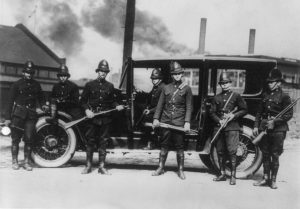
Following the end of World War I, America fell into a preliminary Red Scare. This first wave resulted in the Palmer Raids of 1919 and 1920. Attorney General A. Mitchell Palmer had some 3,000 Italian and Eastern European immigrants rounded up and arrested. Then, after World War II, another wave hit America, this one a bit more familiar because of its association with McCarthyism.
RELATED: The Remarkable Life Of Lucille Ball: Advocate, Rebel, Mother, Hero
Actors and other artists became big targets of McCarthyism. Because they could build such a devoted following and sometimes involved themselves with unions, officials feared they’d use their influence to inspire communist sympathies. Sometimes with limited proof, people ended up on trial for various offenses. One blacklist victim included Lucille Ball herself, brought in, in 1953 with the committee seemed to feel was some pretty damning evidence: she was a registered Communist.
Lucille Ball Accused of Being A Communist
In some cases, trials such as these against big personalities were just for spectacle. This proved the case for Ball in the end. She went to trials that extended from 1952 to 1953, according to Stars and Letters. There, she had to admit she was, in fact, a registered Communist. There was no mistake. But for all the attempts at spectacle — going so far as to make her HUAC interviews public — Lucille Ball’s fans stayed with her through it all.
Ball’s experience with the HUAC was recently dramatized in the Amazon film Being the Ricardos, starring Nicole Kidman as the actress and directed by The West Wing‘s Aaron Sorkin, with Lucie Arnaz and Desi Arnaz, Jr. serving as producers.
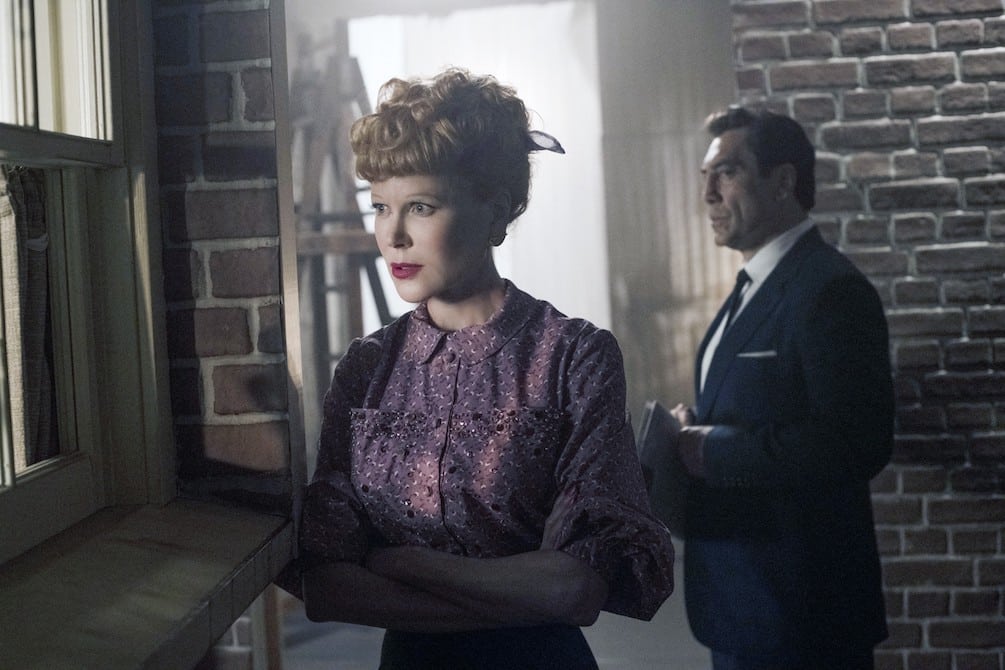
Pop culture historian Geoffrey Mark, who is also the author of the forthcoming The New Lucy Book, is thrilled that the children of Lucy and Desi’s kids were involved. “It is a breath of fresh air, both for history and for Lucy fans, that a creative project is being made that is co-produced by her children that realistically portrays what was one of the hardest weeks in their lives,” he says. “The week that Miss Ball was accused of being a communist is compelling, heartwarming and scary. And I think to focus on that, and to reveal how Mr. Arnaz and Ms. Ball reacted to all the drama of that week, makes for a compelling film.
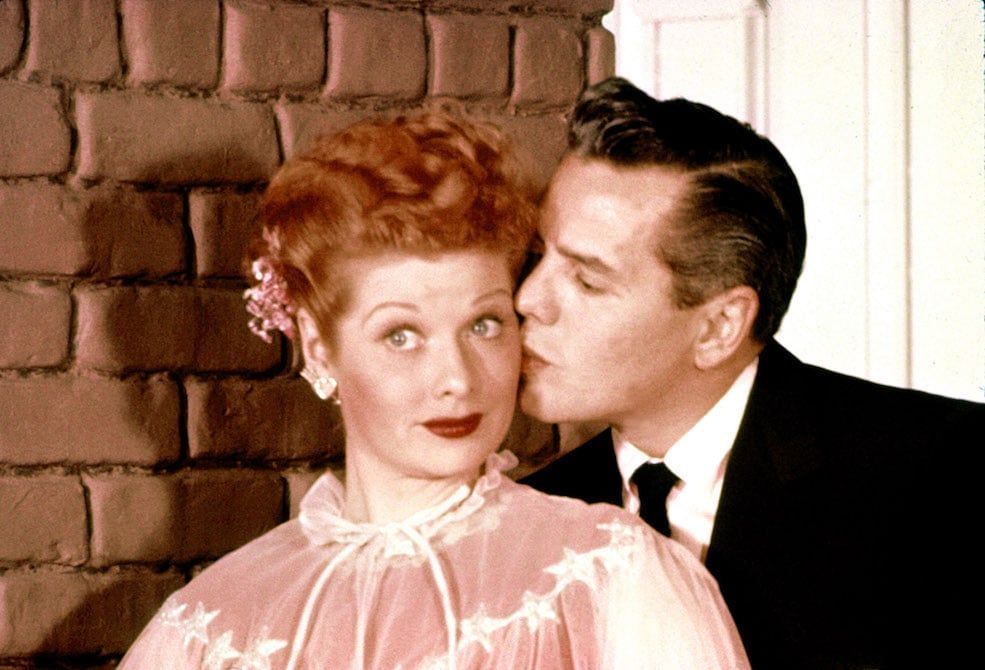
“The Arnazes had already had to fight racial bigotry to get Mr. Arnaz into the show,” adds Mark. “The birth of Desi, Jr. and Little Ricky had made this show the most famous TV series in the world. They had also just filmed The Long, Long Trailer, one of the greatest movie comedies in history, and just as they were gearing up to start the third season of I Love Lucy, this happened. Why did it happen? Because a self-serving conservative columnist named Walter Winchell needed to fill inches on his column and put in a blind item about Ms. Ball — when he already knew that she had been cleared — just to get readership. Just to promote his own name. And in that selfish act, smeared Mr. Arnaz and Ms. Ball, both as performers and as a family. Everything became a crisis.
“A crisis with the CBS network, a crisis with their sponsor, Philip Morris cigarettes; a crisis for the hundreds of people they were employing to put the show together, a crisis for their new MGM film that was being released. A lot was riding on their success at that moment in time. And this son of a gun shot a bullet into it, just to fill some space in his column and for attention.”
Pushing Back
Walter Winchell’s column was published in September 1953 and Lucille immediately found herself in front of members of the government, answering questions about her supposed background in communism. On September 13, The Los Angeles times reprinted her testimony and the fact that she had actually, back in 1936, registered as a communist.
“It was our grandfather, Fred Hunt,” she said. “He just wanted us to and we just did something to please him. I did not intend to vote that way. As I recall, I didn’t. My grandfather started years ago — he was a Socialist as long as I can remember. He is the only father we ever knew, my grandfather. My father died when I was tiny, before my brother was born. He was my brother’s only father. … It never meant much to us, because he was so radical on the subject that he pressed his point a little too much, actually, probably, during our childhood, because he finally got over our heads and we didn’t do anything but consider it a nuisance…
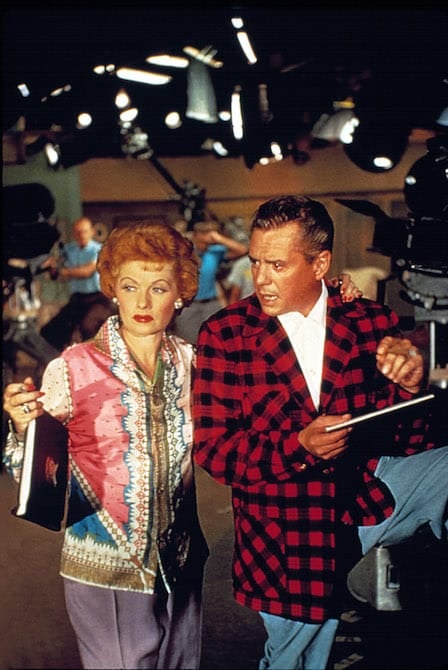
“… So finally there came a point where my brother was 21, and he was going to see that Freddie registered to help the working man, which was, in his idea then, the Communist Party,” Lucille added. “At that time, it wasn’t a thing that got hid behind doors, to be a member of that party. As a I recall, because of this he influenced us. We thought we wanted to do him a favor. We thought we could make him happy. I at no time intended to vote that way.”
In the end she was believed, and on that same day — the 13th — the media reported on a press conference that Lucille and Desi held, one question of which was whether or not she thought this situation would damage her career. “Hurt me?” she asked incredulously. “I have more faith in the American people than that. I think any time you give the American people the truth, they’re with you. [But] it’s a relief to have it over. I’m overjoyed and humbled that thousands of people have written and telegraphed that they are behind me. The reception Friday night at the show was tremendous. They tell me telegrams have poured in by the thousands at the studio, and there hasn’t been one dissenting vote, anywhere.”
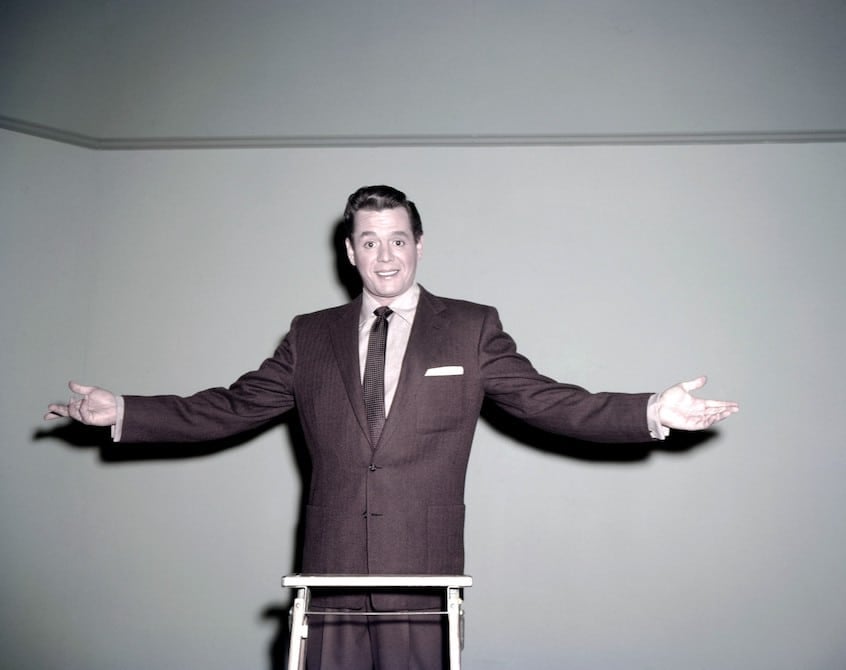
Mark points out that Desi tended to introduce Lucille to the audience by calling her “my favorite red head,” and the night of filming that particular episode, which would be for Season 3, he gave a special speech to the audience, decrying everything that had gone on. “He reminded folks he had been an immigrant running away from a dictator. And then he introduced his favorite red head, saying even that wasn’t real, her being a red head. But I think it’s one of their finest moments to stand in the storm, with their heads held high, and winning.
“Lucille Ball,” he points out, “is one of the very few people who had the tincture of communism applied to her and in one week, like Teflon, it rolled away, perhaps because she was so beloved, perhaps because so many people in this country watched her week after week in their homes. And they trusted her when she said she wasn’t.”
